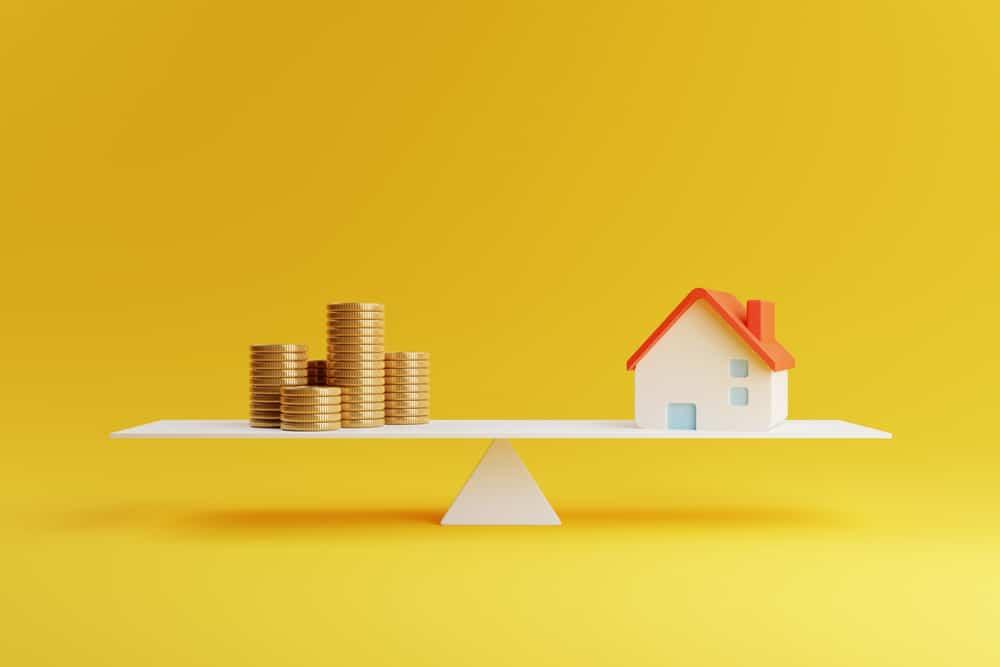
Property Cash Flow Basics For Creating Passive Income
Buying real estate is similar to running a business – good performance is derived from your ability to generate cash flow.
For a property investor, this means eventually living off the passive income that your real estate generates. Therefore, it is especially important that you map out your ability to build a portfolio that will deliberately achieve this level of success from the get-go. Because let’s be honest, we’re not going to be able to rely on a pension in later years to give us the basic security we want or need.
The good news is, we don’t have to take huge risks to get a sensible return; after all, you can get home loans well below three per cent and easily find a six per cent return. What this means is your real estate ownership is completely covered by the tenant’s rent without you having to dip into your own pockets.
CASH FLOW BASICS
Let us start with some cash flow basics.
There are three parts to the cash flow riddle: your wage, the taxman, and your tenant. If your tenant can pay the rent and it covers your mortgage, you are doing well.
Your own cash flow is freed up, so you are not constantly forking out to hold your property. The longer you own real estate the more likely this is to occur.
Having a combination strategy that includes both cash flow and capital growth will provide you with serviceability and equity as a borrower, and will allow you to continue to move forward, so focusing only on yield is a flawed approach.
Equity and servicing allow you to buy more properties, borrow more money and keep building your wealth.
POSITIVE AND NEGATIVE
Often investors hear the terms ‘positively geared’ or ‘positive cash flow’ but are not sure exactly what they mean.
The easiest way to understand these terms is that positively geared properties occur when the rental return and tax breaks cover your loan repayments and outgoings, leaving your wage or income unaffected.
Positive cash flow properties are self-funding, and you do not need your tax deductions or your wage as the rent pays for everything.
Conversely, negatively geared properties occur when the rental return and tax deductions are less than your loan repayments and outgoings, placing you in an income loss position on the property.
There is, however, the underlying expectation that the accumulated losses will be more than offset by the capital growth on the property. In this circumstance, the rental return is not considered as important in the decision process, and you should also have a wage that you are happy to access to help cover the mortgage.
Many people today find the right negatively geared property and ownership may only cost $50 per week.
The key benefit associated with negative gearing is that the loss attributed with ownership of the property can be offset against other income earned, reducing your assessable tax income, thereby reducing your tax payable.
The result is that the cost of owning the property is being funded by your tenant (in the form of rent), the Tax Office (in the form of tax savings) and your surplus cash flow.
Ultimately, most investors will aim to be positively geared in the long run. As your rents increase and debt on your property drops, you can even begin to replace your wage with rental income.
FIND THE BEST RENTS
I recently had two clients buy a property on the same street. My first client paid about $600,000 and bought a high-pedigree piece of real estate and received $700 per week in rent, which is a pleasing return.
My other client decided to pay less and bought an inferior property with inferior inclusions for $550,000, believing they were getting better value given the $50,000 price difference but not realising the fixtures, fittings and design matters in real estate to renters.
My second client is now only getting $450 per week. The difference in rent is huge. Yes, they were comparable properties in terms of price range, but one was superior and true value for money, while the other fell into the cheap category and is now in a race to the bottom.
The superior rent allows that client to pay off debt faster and fast track their wealth creation.
ESTABLISH YOUR CASH FLOW PLAN TODAY
Moral of the story? Cash-flow is king when it comes to being a successful property investor. Learn how to build a strong and profitable property portfolio by mapping out a clear cash-flow pathway at our free property investing seminar.
Our expert coaches will explain all the components required to create a strategic and robust property plan so you can move forward fast.
Register now for the free property investor webinar
By Sam Saggers
Recent Articles
The Equity Tactic For Excelling Your Property Portfolio
While long term we know that cash flow is dependent on a good rental income, capital growth is the quickest way our property can pay us back. This comes down to having some smart tactics to get the most out of every dollar of value in our investment properties – something we like to call equity lock.
Are You at Risk of Losing Millions?
Considering that all major Australian cities are coastal, and most of the richest neighbourhoods are beachside, the growing threat of severe weather incidents due to global warming throws a serious spanner in the works when considering where to buy and invest. If you’re a climate change sceptic, we’re not here to judge. But that position isn’t going to help you if the institutions you rely on to protect your assets won’t have a bar of your $3 million beachfront house.
The Best Home Loan for Property Investors
Deciding on the right loan structure as a property investor, is a little bit like choosing the right outfit on a first date. It depends on what stage of life you’re at! If you’re new to the game, something a little daring might work best. Later on, you might want to play it safe. It’s the same for property investment and the stage you’re at reflecting how risky or safe your loan structure needs to be. Here we weigh up the pros and cons of principle and interest loans vs interest only loans for property investors.
The Three Golden Rules of Selling an Investment Property
Rules are an important part of life. And rules in most cases, are really just another word for common sense. They give us a clear framework around many important aspects of life, so it’s no surprise when it comes to selling your investment property, there’s a number of rules you need to follow in order to get the best result.
If you want to know when to sell an investment property, or even if selling an investment property is a good idea, all you have to do is read the rules.
Use Debt To Create Wealth in 3 Simple Steps
Most of us were raised with the idea that debt is bad. Debt drags you down. Rich people are never in debt.
While that may have been true for our great grandparents, it’s no longer the case. Debt is one of the keys that can unlock future wealth as a property investor. The more good debt you have, the more income you can create.
But, before you go out and put yourself $1 million in the hole, let’s talk about the right kinds of debt. The debt that’s going to lead to success, not ruin. This is called…
Harness Data To Help Guide Property Investor Profits
I’m sure you’ve heard – data is the new currency. It’s the next big thing for business and it will be a catalyst for driving the world forward over the next few years. Learning how to harness the power of data in property investing, will be a secret weapon all investors can use to create more wealth. So, what is data? It’s information, insights and predictions that property investors can use to help them make smart property purchases.
A Lending Boom Is Coming Are You Ready?
After a lot of bad news over the past 12 months – thanks a lot COVID-19 – it’s nice to be able to kick off 2021 with some good news. There’s going to be a lending boom which, if you have your property investment strategy in place, is going to make your life a whole lot easier so you can build your property portfolio faster and cheaper.
What Is the True Value of Your Investment Property?
Like a fine wine, the value of property gets better over time. Traditionally, the more time you have an investment property, the higher the value will rise.
However, unlike your favourite Shiraz, property values can go up and down, and up again.
Getting to know how, why and who is valuing your property can help us understand what property to invest in.
There are three ways to value a property – and three very different people doing the valuing.
The 3 ‘Big Rocks’ of Property Investment Success
What are your Big Rocks this year? What are your Big Rocks for your property investing journey?
If you’re scratching your head and wondering if you’ve accidentally stumbled across a blog for construction workers, bear with me.
Big Rocks is a concept often used in business or life coaching to essentially describe your priorities. The theory is, if you don’t have clear priorities, or if you have too many, chances are you’ll let smaller issues distract you and ultimately fail in your goals.












